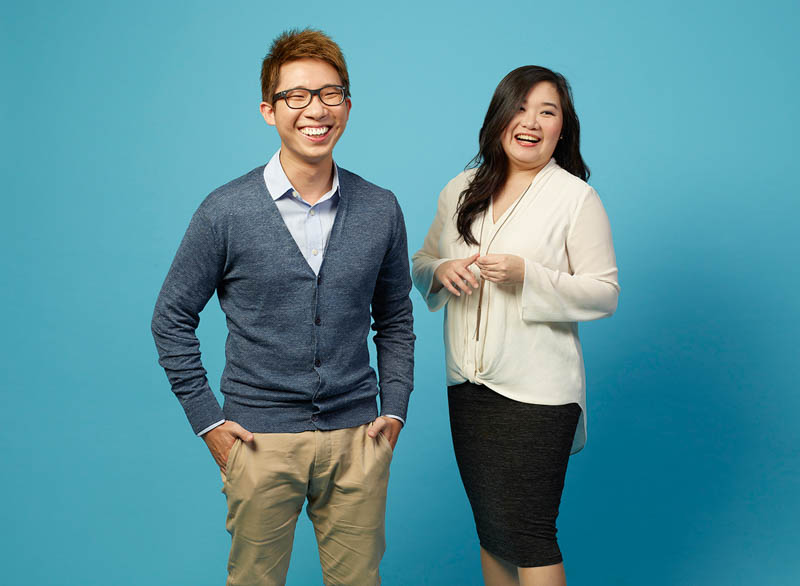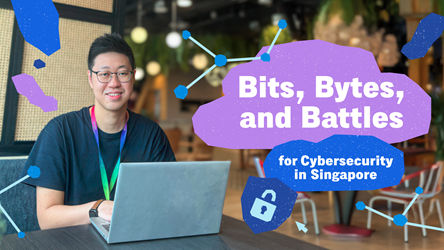The Legal Aid Bureau's Lawyers Are Here To Help

“Excuse me, how do I get to the $1 lawyers?” is a question you may often overhear at the URA Centre East Wing, where the Legal Aid Bureau (LAB) office is located.
But the “$1 lawyers” expression, used by some as a colloquial reference to the LAB, is one of the misconceptions about the Bureau.
While $1 used to be the registration fee one pays when applying at the Bureau to get legal representation, it is no longer necessary as of June 2016. However, most who qualify for legal aid will still have to pay another fee (usually under $1,500) before they can be represented in court.
Applicants who meet the financial criteria for legal aid go on to meet with a legal executive, such as Mr Terence Ho.
Every day, he spends half his time interviewing two to three applicants to record the details of their case. The rest is spent drafting court documents, gathering more information about his applicants’ cases, and conducting mediation sessions for disputes that can be settled out of court, which is less costly and time-consuming than going to trial.
A former freelance journalist with no legal training, Mr Ho decided to enter the legal sector as he was keen to learn about the legal aspect of the cases he had reported on.
The bulk of the cases that the LAB handles involve matrimonial matters. Other matters the Bureau has helped with include appointing legal guardians of children, monetary claims, and applying for declarations on the presumption of death for missing persons. It does not take on criminal matters.
One of Mr Ho’s very first applicants was a woman who wanted to file for divorce on the grounds of domestic violence. It is a case he remembers clearly, having spent three hours (instead of the usual one hour) to listen to his tearful client.
But his two years with the Bureau has trained him not to get emotionally attached to his cases. Something else he learnt on the job was that not all divorce applications end up in divorce – some applicants eventually withdraw their cases for the sake of their children, while other times, the grounds for a divorce are not met.
After the legal executives have taken statements and prepared the background notes, they pass the cases on to the Bureau’s in-house legal officers, who are legally trained.
The legal officer reviews each case file and obtains sufficient facts, then prepares an opinion on the merits of the application. This is submitted to the Legal Aid Board, comprising the Director of Legal Aid and three volunteer lawyers on the Bureau’s panel of Assigned Solicitors (see sidebox). The Board decides whether legal aid can be granted.
Having a heart for the needy
As a legal officer, Ms Rachel Gan manages an average of 200 cases at any given time. Having been a family lawyer since her days in the private sector, she is no stranger to matrimonial cases.
But it was the type of applicants that the Bureau helps – about half of them have primary-level or secondary-level education – that drew her to become a public officer.
One of her most memorable applicants was a woman who was supporting her family of five on a monthly salary of less than $800. Despite being on the receiving end of her husband’s physical and verbal abuse, she supported him financially without complaint. Her reason was simple: It is important to be magnanimous. The experience left Ms Gan inspired to be a “better person” herself.
At least once a week, Ms Gan attends court to represent her clients in civil proceedings or administrative hearings.
In her past year at the Bureau, Ms Gan has witnessed how much calmer some of her applicants become after she briefs them on the possible outcomes of their case and what they are required to do.

One of her applicants was able to recover her ability to sleep well only after the Bureau accepted her case, shares Ms Gan, while another applicant hugged her in thanks after a mediation session.
“These things make me feel like this job is worthwhile because we’re giving them so much more than just a legal solution, we’re giving them peace of mind,” adds Ms Gan.
As for Mr Ho, working at the Bureau has made him a lot more aware and concerned about the significant number of needy in society, which he admits came as a surprise to him.
“After working at the LAB, I now try to buy tissue paper from those tissue paper aunties. For them, $1 may mean a lot,” he says.
WHO QUALIFIES FOR LEGAL AID?
Singapore citizens and permanent residents are eligible for legal aid if they meet the financial criteria and if there are reasonable chances of success for their case. For more information, visit: bit.ly/minlawLAB
ASSIGNED SOLICITORS
In addition to having in-house lawyers (legal officers), the Bureau is supported by a panel of some 600 volunteer lawyers, known as Assigned Solicitors. These lawyers handle cases that require special areas of expertise, such as Syariah Law cases.
- POSTED ON
May 1, 2015
- TEXT BY
Joanna Hor
-
Unsung Heroes
Seeing the Unseen









